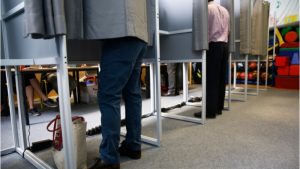The University of Wisconsin-Madison (UW-Madison) will use artificial intelligence-enabled walkthrough scanners to screen students, faculty, and visitors for improved campus safety.
The Northshore School District in Washington state is asking voters in the upcoming Feb. 8 election to approve two new levies and one bond, which would total roughly $700 million of new funding for the district.
While 2021 certainly had some attention-getting ransomware attacks, a new report from anti-virus software company Emsisoft found that ransomware attacks dropped in 2021 for both state and local governments (SLGs) and educational organizations.
The City College of New York (CCNY) announced that it is now directly connected to the COSMOS beyond-5G testbed, which is supported by multi-million dollar investment from the National Science Foundation (NSF).
Northeastern Regional Information Center (NERIC) announced that it has contracted with Edupoint Educational Systems to offer the company’s Synergy Education Platform to NERIC member schools.
The South Carolina State Board of Education announced that it has approved a new science techbook for statewide use as a core instructional resource.
A new report found that the majority of educations – 74 percent – believe that video is more effective than text-based educational content.
Finalsite, an internet software company that provides website design, hosting, and content management solutions to school districts announced that a ransomware attack impacting 5,000 of its total 8,000 global customers.
To close out the 2021 fall semester, the University of Arkansas announced that the mainframe that powered Business and Administrative Strategic Information System (BASIS) was powered off after 25 years. Decommissioning the mainframe will save the university approximately $1 million per year in service and licensing fees while ensuring the integrity of institutional data.
Following the state releasing its final biennial budget, North Carolina Community College System (NCCCS) announced funding wins for the state’s community colleges, and noted that the $1.46 billion investment in the community college system is the largest received over the past decade.












